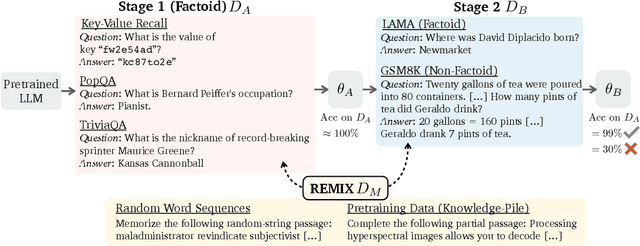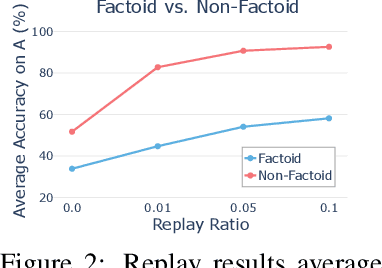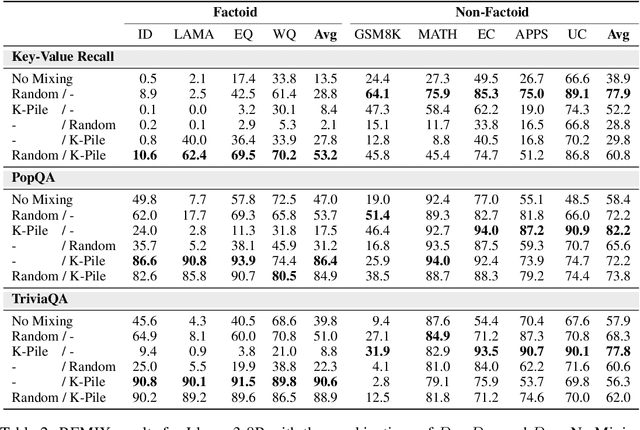Continual Memorization of Factoids in Large Language Models
Paper and Code
Nov 11, 2024



Large language models can absorb a massive amount of knowledge through pretraining, but pretraining is inefficient for acquiring long-tailed or specialized facts. Therefore, fine-tuning on specialized or new knowledge that reflects changes in the world has become popular, though it risks disrupting the model's original capabilities. We study this fragility in the context of continual memorization, where the model is trained on a small set of long-tail factoids (factual associations) and must retain these factoids after multiple stages of subsequent training on other datasets. Through extensive experiments, we show that LLMs suffer from forgetting across a wide range of subsequent tasks, and simple replay techniques do not fully prevent forgetting, especially when the factoid datasets are trained in the later stages. We posit that there are two ways to alleviate forgetting: 1) protect the memorization process as the model learns the factoids, or 2) reduce interference from training in later stages. With this insight, we develop an effective mitigation strategy: REMIX (Random and Generic Data Mixing). REMIX prevents forgetting by mixing generic data sampled from pretraining corpora or even randomly generated word sequences during each stage, despite being unrelated to the memorized factoids in the first stage. REMIX can recover performance from severe forgetting, often outperforming replay-based methods that have access to the factoids from the first stage. We then analyze how REMIX alters the learning process and find that successful forgetting prevention is associated with a pattern: the model stores factoids in earlier layers than usual and diversifies the set of layers that store these factoids. The efficacy of REMIX invites further investigation into the underlying dynamics of memorization and forgetting, opening exciting possibilities for future research.
 Add to Chrome
Add to Chrome Add to Firefox
Add to Firefox Add to Edge
Add to Edge